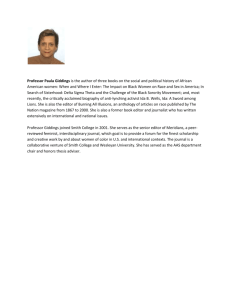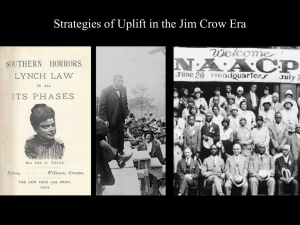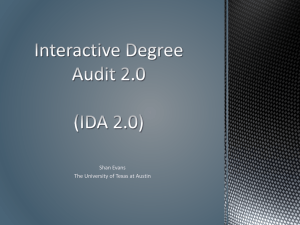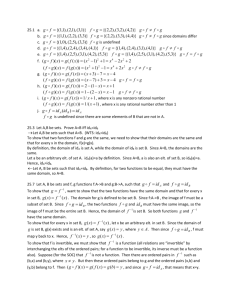The Panel Beaters `Welcome ladies and gentlemen to another tasty
advertisement
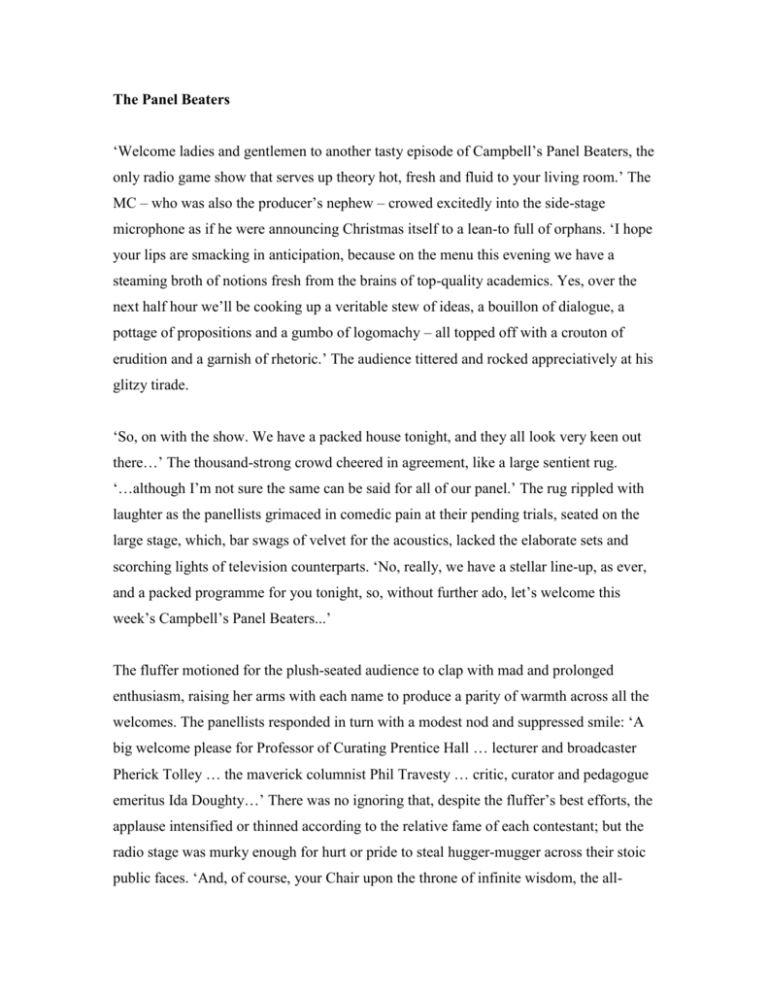
The Panel Beaters ‘Welcome ladies and gentlemen to another tasty episode of Campbell’s Panel Beaters, the only radio game show that serves up theory hot, fresh and fluid to your living room.’ The MC – who was also the producer’s nephew – crowed excitedly into the side-stage microphone as if he were announcing Christmas itself to a lean-to full of orphans. ‘I hope your lips are smacking in anticipation, because on the menu this evening we have a steaming broth of notions fresh from the brains of top-quality academics. Yes, over the next half hour we’ll be cooking up a veritable stew of ideas, a bouillon of dialogue, a pottage of propositions and a gumbo of logomachy – all topped off with a crouton of erudition and a garnish of rhetoric.’ The audience tittered and rocked appreciatively at his glitzy tirade. ‘So, on with the show. We have a packed house tonight, and they all look very keen out there…’ The thousand-strong crowd cheered in agreement, like a large sentient rug. ‘…although I’m not sure the same can be said for all of our panel.’ The rug rippled with laughter as the panellists grimaced in comedic pain at their pending trials, seated on the large stage, which, bar swags of velvet for the acoustics, lacked the elaborate sets and scorching lights of television counterparts. ‘No, really, we have a stellar line-up, as ever, and a packed programme for you tonight, so, without further ado, let’s welcome this week’s Campbell’s Panel Beaters...’ The fluffer motioned for the plush-seated audience to clap with mad and prolonged enthusiasm, raising her arms with each name to produce a parity of warmth across all the welcomes. The panellists responded in turn with a modest nod and suppressed smile: ‘A big welcome please for Professor of Curating Prentice Hall … lecturer and broadcaster Pherick Tolley … the maverick columnist Phil Travesty … critic, curator and pedagogue emeritus Ida Doughty…’ There was no ignoring that, despite the fluffer’s best efforts, the applause intensified or thinned according to the relative fame of each contestant; but the radio stage was murky enough for hurt or pride to steal hugger-mugger across their stoic public faces. ‘And, of course, your Chair upon the throne of infinite wisdom, the all- round accomplished and lavishly upholstered Dean PP Wingfield-Digby!’ The rest of the MC’s spiel was drowned by air jangling with claps, enriched by the shrill whoops and base bellows of men, women, boys, girls and castrates making free with the full vocal spectrum. Despite the roiling crowd, the vast and vaulted auditorium was freezing and Ida Doughty was, for once, glad of her inverted nipples, especially as she’d chosen a particularly sheer cream scoop-neck Fiorucci tabard to go with her high-vis harem pants for the evening’s performance. Public speaking was still excruciating in innumerable ways, but she’d one advantage over the other panellists, who sat with arms folded too high on their chests to shield their embarrassing protrusions. But while relieved of that particular corporeal issue, she was still oppressed by other all-too familiar physiological symptoms: the sensation of flesh withdrawing inwards from the skin, of feet and hands turning otter-cold with damp and the deeper regions of the bowels churning like bottled pop agitated and ready to blow. No matter how often she mounted a stage to face the judgemental audience it never got any easier. Comedy panel show appearances are the very worst part of being an art critic. The comedy is just a cover – these ‘game’ shows are actually a serious mode of peer critique, in public and in real time: the jokes often contain wounding barbs aimed at academic adversaries, present and absent; jolly quips signal an attempt to assert a plastic intelligence and mobile wit that hopefully supersedes paradigmatic a priori, and every wrong answer, while often apparently played for laughs, is a potential hole in the hull of a sinking academic. It brought out the ire in Ida. ‘They make you flop out your thoughts for inspection, like the contents of a fish’s stomach,’ she would fume every time she was invited. ‘It’s nothing but a thinly veiled quality control process. They line us up and prod us, then measure the level of intellectual pollution we’ve been swimming in, the toxicity of the ideas we’ve swallowed and the amount of rubbish floating in the canals of our mind. I wouldn’t mind if they cleaned the rubbish out while they were at it, but oh no, they just throw us back into the same stinking pond. And then they call us up for a repeat appearance the following week. It’s serial abuse.’ The intellectual benefits of such a public display of weakness are debatable – they say we learn from our own mistakes, but other people’s tend to produce only unreflexive shadenfreude. The entertainment value, though, is historically and universally buoyant. Campbell’s Panel Beaters had topped the ratings since it began, and such visibility had many payoffs in a society obsessed with intellectualism. So in the main Ida swallowed hard, faced up and gave out, racking up her radio hours in the hope that they would miraculously rematerialise as laudable published titles, which occasionally they did. As is often the case in these programme formats, the Chair was the only scripted participant. Wearing the old-hand’s ruffled-fronted blouse, to engulf all nipple mishaps, Wingfield-Digby dominated proceedings by way of sturdily comic lines rooted in relevance, while everyone else rummaged about in their heads for whatever amusing wisps they could clutch at under pressure. The show got underway with a few quick-fire games like ‘Attribute That Quote’, ‘One Theory in the Rhetoric of Another’ and the round that Ida particularly excelled at, ‘Reclaim That Canon’, this week forging ahead through bonus points for feminist literary revisions A Womb of One’s Own, Madame Ovary, Of Mice and Menses, David Copper Coil, Three Men in a Blastomene, Candida, Women without Men, Lady of the Flies, On the Pill, I, Claudia, The Maltese Fallopian, The Big Speculum, Das Cap, Zen and the Art of Menstrual Cycle Maintenance, A Tale of Two Titties, The Daughter Also Rises, As I Like It, The Mooncup and Sixpence, The Mastectomy and Margarita, Ectopic of Capricorn, Miscarry on Jeeves, Infinite Gestation, East of Oestrogen, Nulligravid’s Rainbow, The Endometrium of the Affair, The Embryonic Man, The Cunt of Monte Christo. Once the pun dust had settled, the format switched gear to sustained improvisation, starting with ‘Conversation Pieces’, in which pairs of contestants ventriloquised wellknown artworks. Pherick Tolley and Phil Travesty, as Angel of the North and Nelson on his column, squabbled over which was best – height or age, anonymity or being dead. Then Prentice Hall delivered a monologue as an unattributed watercolour landscape, which, while art historically rich in clever references, lacked any jokes whatsoever and neglected to even acknowledge Ida, who stood stiffly to the side doing a brilliant impression of a pot from a mid-career Morandi painting. In the next round, each contestant was to step up to a spotlit lectern to deliver a soliloquy on a recent news item picked from a number of sealed envelopes. The trick here was to insert pre-authored showpieces into an improvised but coherent polemic on the given subject – a difficult weave that few academics could pull off. Hall was hopeless. Once he’d delivered a lame opening pun, he didn’t even attempt to be funny, sweeping off, instead, down his usual rhetorical log flume. His own area of interest was a branch of anti-humanism that those in the backroom laboratories of the newer, funkier subdepartments thought passé, but which the mainstream media considered edgy and compelling. He was clearly not invited on the show for his comedic pyrotechnics, but for his theoretical solidity. Unlike many of the other contestants, who crashed and burned hilariously, Hall was an unflinching intellectual point scorer, which the producers felt important in saving the programme from falling into comedic anarchy. But it cast Hall in an uncomfortable role: in the context of Panel Beaters he was tolerated but largely overlooked as an interesting competitor, and his academic supporters were more often embarrassed by his not getting anyone else’s joke than they were impressed by his analytical capabilities. He was a classic stooge, and Ida would have felt sorry for him if he hadn’t been so comfortably oblivious. His newsworthy photograph was of someone standing in front of a piece of public art in such a way that they appeared to have a huge penis. ‘Ah, yes, this is the story about the role of members of the public. This is one of those ghastly participation pieces, and it’s not a step above, in my opinion, one of those old seaside photography things. What are they called? You know, that you stick your head through.’ Everyone else on the panel looked at him blankly, the audience collectively shifted in its seat. ‘Anyway, in my opinion it’s yet another example of the instrumentalisation of art, and my responsibility as a curator is to protect it from this abuse.’ The audience clapped politely and gave out a rustle as they made themselves comfortable for what was inevitably to come. ‘Here we go,’ mouthed the producer to his nephew, offstage; and the whole crew took advantage of the few minute’s downtime, popping out for cigarettes and checking their after-show plans. ‘A curator,’ continued Hall, ‘traditionally protects an artwork from damage by both physical and interpretative acts, but these days the curator must also protect the artwork from banalisation by way of subject-centred individual subjecthood, by which I specifically mean the way that art has become an instrument of the state. Art has been made to appear as if it were bestowing cultural agency upon the individual and, as a consequence, creates a flow of commodity exchange that assimilates art into capitalist structures. This is a travesty of all that art should be.’ He went on to outline a proposition with such conviction that it seemed an inevitability, if not already a reality. Art, he explained, will be relieved of all utility and responsibility so that it can be all it needs to be in order to fulfil its own expectations of itself. Everyone else’s needs and expectations are inconsequential. Even the artist must leave their ego to one side. The sound engineers snapped back into action as Hall’s academic fan base cheered at his worthy exegesis, sweating in their high-street approximations of his capacious, and divisively audacious, wardrobe. This past week Hall had been doorstepped wearing a mustard yellow feather jacket by Corinne Cobson, a padded puffball tricot skirt, with drawstrings, by Comme Des Garcons, a plum-coloured velour playsuit by Claude Montana and a pair of flash-detailed Lycra cycling shorts by Debbie Moore for Pineapple, cheap copies of which were already flooding the high street for teenagers to hoover up. This knock-off cocktail of nylon, polyester, acrylic, spandex, zylon, derclon and kevlar had the effect of raising the body temperature of the wearer by a hefty few degrees, making Hall fans hotly antagonistic in the bar afterwards. Wingfield-Digby supporters, on the other hand, tended be more mature and would wear cool cotton vintage t-shirts celebrating specific moments in her long career. Catchphrases from her classic public speaking tours in period typefaces declared ‘Now that’s what I call becoming’, ‘Say no to negative space’ and ‘Nostalgia is so five minutes ago’. A handsome man in the second row, mid-thirties with big browns, was wearing a ‘choose live’ t-shirt with mid- length leg-of-mutton sleeves that revealed a pair of incredibly suggestive forearms, and it was these that first caught Ida’s eye as she was called on to enter the spotlight. It is debatable whether public speaking is made more or less difficult when there is one person in the room the speaker wishes particularly to impress. On the one hand, it is distracting when the mind wanders towards the glands, on the other it is easier than trying to please everyone in the room. Ida thought it best not to speak only to the handsome man in this instance, since this was a live broadcast and she had plans riding on impressing people in places higher than the second row. She had intended to take a position contrary to Hall, not because this was necessarily her own position, but because he had some fierce detractors that she did not want to count amongst her own. To achieve an oppositional stance, despite not knowing beforehand what her news prompt would be, Ida had developed a number of schematic strategies and semi-plotted trajectories, which, she hoped, could be bent into an anti-anti-subject-centred-individual-subjecthood narrative, without being construed as pro-subject-centred individual subjecthood. Ida’s news item was an argument between two precocious children over an objet trouvé in the Museum of Contemporary Hysterical Art, a large public institution at the heart of the Academy, where she had recently spent a year as Critic in Obeisance. Somewhat compromisingly, that afternoon she had found herself having to write a damning review of one of their shows, and so she should be careful not to rub the director doubly up the wrong way. She made a successful and fairly neutral joke about the readymade being ‘youthful, ethpecially awound the houthe’, and then performed a canny two-step back to Hall’s self-serving artwork, which she exaggerated for comic effect, grotesqueing it as a corpulent, spoiled brat unwilling to get out of bed. Three minutes in and she was really getting into her stride, smattering a clearly ridiculous picture with little splashes of truth: ‘It starts with small things, like gallery staff not being allowed a toaster in case particles of burnt toast introduce too much materiality for the art’s liking. Because absolute immateriality is what contemporary art wants.’ In fact, it was the particles of carbon in the air setting off smoke detectors that had brought about the toast ban in galleries, but all facts are stretchable when spinning a fiction. ‘And then, before you know it, art is being shielded not just from smoke and humidity, but from means testing, innovation legislature, resource maintenance and point of delivery assessment – in fact, from anything that forces it into a state of measurability. Because art wants to disappear. And the gallery lets it, because the curators have replaced the primacy of the audience with the primacy of the artwork.’ This too was true to an extent, since part of the curator’s job was to shield the artist from the pressures of bureaucracy. To ascribe this desire for liberty to the artwork itself, though, was an anthropomorphism worthy of the old Disney fantasies. But Ida was thoroughly enjoying herself, embellishing the cartoon she saw unfolding in her head and relaying it to the increasingly animated audience. ‘Soon we will witness generous, civic-minded art transmogrify into a vile bully, fat on resources and attention, jabbing the air with its spoon, demanding more and more until it’s sick. Its meanings will become increasingly contentious, not for the sake of consciousness raising, but to be gratuitously sensational; social health will decline as art gives less and less back, becoming slender in the mind of its audience while bloating in actuality, blotting out the institution, the Academy, society itself.’ Despite trying not to, Ida couldn’t help but catch the eye of the man in the second row. It is of course true that, as she was at the lectern addressing the audience, it wouldn’t be so unusual for him to be looking at her intently, but she couldn’t help feeling a thrill each time her gaze hooked onto his. ‘We will witness the establishment of a new underclass. The institution will commission vast and lavishly minimal installations with one hand, while laying off staff with the other.’ Her frame, already quivering with adrenaline and the chill, resonated with an extra spurt of lust each time they made eye contact. She dared herself to look more often, then less often, then not at all, then only at him. Oh the sweet agony – it sent jolts through her speech patterns, making her appear to rise up indignantly as if impassioned by her own ideas, even though they were simply unfolding logically from her diametric opposition to Hall. ‘Art will suck in all resources until there is little left to support the support structure. Human sacrifices will be made in the form of redundancies, and free labour conscripted from the many curating courses nationwide. Soon many will be working in appalling conditions and living in squalid gulags where disease and hunger are a constant houseguest.’ The man in the second row was sitting forward intently, and Ida felt a wave of excitement rising in the auditorium, a wave that she was not averse to clambering onto and riding triumphantly to the beach of public approval. Her voice started to rise in volume, pitch and speed as she reached a point of raw rhetoric. ‘Art, once granted absolute sovereignty, will eclipse its own impact. It will disappear in a welter of self-indulgence. What was once considered the externalised expression of an artist reaching out to an internalising audience, will instead avariciously ingest all it comes into contact with and dole it out as an empty fart. And soon the nihilist’s bum anthem will be all we can expect from this despot…’ As she paused for breath, the audience’s gasps were no longer possible to ignore. She must be well over time, but why hadn’t the chair stopped her? ‘Er, PP, am I done here do you think?’ she asked with the comic timing of the consummate self-interrupter. ‘Well and truly, Ida,’ said the Chair, nodding sagely. The audience had not, at first, been electrified by Ida’s pronouncements so much as her grade-1 inverted, or ‘shy’, nipples, which had, some time back, started responding to the man in the second row. These two fey but robust fleshy protuberances had nudged towards him like yearning creatures, creating a confusing frisson of hilarity and horror in the first few rows of the auditorium, which spread backwards and upwards as an abstracted contagion. Not realising the source of the furore – for she had very poor peripheral vision, inherited from her grandmother on her father’s near-side – Ida’s vanity and brio swelled along with her nipples, reaching proportions that were difficult to box back up as she repaired to her seat amongst the panellists. It was only when Tolley began to drone comfortingly about funding streams that it sank in: she had just, accidentally, on a tidal wave of oration, insulted the museum that had generously hosted her for a whole year and spuriously denounced art as evil. Of course it had all been in the spirit of fun, but the lack of applause or laughter as she took her seat, and a look of deep sympathy from Travesty, told her that she had been controversially contentious. Contention was a fundamental necessity in Academia, but there were limits. Throughout the rest of the broadcast, as each speaker delivered jokes with theoretically sound content, or at least theoretical sounding content, or was it theoretically content sounds, or contented sounds in theory … Anyway, while these entertainments were underway, Ida simmered in a complex brew of oestrogen and adrenalin. She played it safe in ‘Hunt the Slipper’, declared ‘pass’ in ‘Name that Silence’ and didn’t trust herself to even open her mouth during the final round of quick-fire witticisms, which was when she usually excelled. At the final score, she placed a dismal third (Tolley coming last due to a whopping fifty points subtracted for a fumbled phenomenology reference – a punishment Wingfield-Digby meted out for the slapstick of it). That was fine. She didn’t need to win every time. But the question was, well, the three questions were, would the media take the audience’s dim view of her humorous deviation? And who was this man in the second row, who throughout the rest of the programme had been taking notes studiously, looking up now and again to gaze at her not without warmth? Was she in there?
